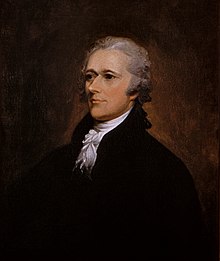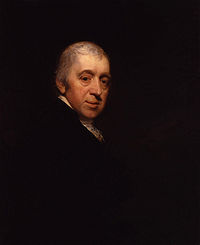
"Government is not reason; it is not eloquence; it is force! Like fire, it is a dangerous servant, and a fearful master." ~ George Washington
Check us out on Discord
Sign ups are OPEN
Starring
* * *
Dadarian as William Blount
Trekfan as Richard Pennington
Robespierre as Albert P. Harrington II
Madmartigan as Elijah Walling
It is spring of 1805. Republican Thomas Jefferson has just been inaugurated as the fourth president of the United States in one of the most divisive elections in american history, defeating Alexander Hamilton and the Federalists.
The nation is deeply divided between north and south, Federalist and Republican. The Federalists, torn between the hard line Hamiltonians and moderate Wedgewoodites, believe in a strong federal government, centralized banking, and urban manufacturing. The Republicans focus on agrarianism and states rights. Amidst this feud there emerges the abolitionist struggle spearheaded by Albert P. Harrington of New Jersey, making the call for suffrage and emancipation of the slaves.
Meanwhile, across the sea, the superpowers of France and England are locked in war, turning all of Europe into their battleground, and each side pleading with the United States to lend their support. All the while, the Barbaric pirates of Tripoli threaten European trade and travel.
Men of courage and virtue are needed in this new American century. Who among you will stand to brave the frontier and European powers, face down the dogs of war and emerge victorious on the other side.
This is our land, from sea to shining sea. It is our destiny. We need you to realize that destiny.
How To Play
Welcome to From Sea to Shining Sea, an historical(ish) role playing game taking place early in the nineteenth century. This game is a reboot of the former StSS game that continues the trials and tribulations of early american statesmen. Unlike the former game where events were centered around the United States Senate, this game is taking a broader approach, focusing more on characters rather than the federal government and the senate. Yet the overall objective remains the same - gain influence and power and realize your vision for the United States.
Our game begins where the last game left off. Hamilton never dueled Aaron Burr, thus he is still alive. The Louisiana Purchase has never happened, thus it is still in the hands of France, and Thomas Jefferson has succeeded the fictional character, Andrew Thowegood, as fourth president of the United States.
The game takes place in turns, each spanning three months in game time. Player’s send a PM of their primary order, and secondary order, and exert wealth and prestige in order to get their orders accomplished. Orders are processed through chance, so nothing is a guaranteed victory. The more prestige and allies you have, however, contribute to a greater chance of victory.
Primary orders are your character's main focus for the turn. Secondary orders is something minor your character wishes to achieve which should not require as much time and energy as the primary order.
The first thing you need to do is sign up. You can sign up either as historical figures or a person of your own creation. Nothing too outlandish, though. This is a historical(ish) game after all. Try not to stray too far from what is reasonable for the time and place.
To sign up, use the following template. You will be asked to link your stat sheet in later.
[image]
Name
Date of Birth
Political Affiliation/Leanings
Ability Focus
Martial/Diplomacy/Stewardship/Learning/Intrigue
Bio
Name
Date of Birth
Political Affiliation/Leanings
Ability Focus
Martial/Diplomacy/Stewardship/Learning/Intrigue
Bio
Now click the link to open the Character Sheet. Copy and paste the template into your own google doc and give me the link with permission to edit.
Stats
Each player character will be given stat sheet in which their character’s wealth and attributes are laid out. It is the responsibility of each player to maintain their stat sheet, and ensure they are up to date. GMing is time consuming, and having players manage their own stat sheets cuts down on my work considerably.
Name
Date of Birth:
Occupation: Your character’s current occupation ie State Senator
Background: Your character’s primary vocation leading up to in game events. Ie Lawyer
Influence: Your character’s level of influence and ability to enact change at the local, state, and federal level. A character that wields influence at the local level will find it difficult to enact change in the higher tiers.
Prestige: Prestige is your measure of renown among your peers and a numerical value to represent your ability to call in favours. Players can spend prestige points to call in favours and give themselves a greater chance of success.
Abilities are points and modifiers that pertain to a set of skills your character has. Your orders will fall under the following abilities with increased chance of success upon skills in which you are proficient at. Player’s may choose one skill to be proficient at, adding a bonus, otherwise your abilities are assigned by me.
Martial - A measure of your tactical prowess, and ability to lead troops in battle, engage in combat, devise military strategies, among other things regarding war and fighting.
Diplomacy - Your ability to sway people’s opinion of you and convince them to your point of view. Gaining followers, diplomatic engagements, and writing treaties involve the diplomatic skill.
Stewardship - Overall skill involving finances. Business and banking ventures require a degree of stewardship to be successful as well as sitting top financial posts in government.
Learning - A measure of overall intelligence. Learned individuals are better suited to tap into lessons of history and scripture to accomplish their goals.
Intrigue - A character’s skill at manipulation and scheming. The political scene is rife with intrigue, and those with the wisdom to implement an intricate scheme often find themselves the center of power.
Assets - a list of your property and its value is compiled here. Estates you own are listed here, not government boons and perks - ie governor’s mansion, white house, etc.
Income - A breakdown of your quarterly income, usually stemming from your character’s assets.
Expenses - A breakdown of your character’s costs in maintaining assets and ongoing projects.
Rolling For Orders
Your orders are determined by the roll of the die, randomly generated by a bot on Discord. Difficulty of the roll is determined by your level of influence, strength of opposition, and overall scope. Modifiers are added to your role depending on the corresponding ability, prestige, and any allies you have helping you.
For example, let’s say you are the grandmaster of a secret society intent on installing a puppet into the governor’s office. You’re skilled at intrigue so you will scheme to install your candidate of choice.
You’re influential at the state level, and as the scope of your orders will affect state politics, roll difficulty will be 10. Ah, but it won’t be that easy. You’re opponent in the race is a skilled diplomat, lending his skill to the difficulty, raising the roll to beat at 12. (saying his diplo +2) So I roll a 20 sided die to determine the outcome. Let’s say your intrigue is +3, so I will add that to the roll as well. Oh dear. You rolled a 9. Not quite enough to make that 12 roll. However, after we add your intrigue modifier, you tie the 12. Ties will always favour the aggressor. Therefore, due to your skill at intrigue, you succeed, and successfully plant your puppet as governor. Such an order would have an effect on future orders regarding the state. With our puppet in place, your character would now have an easy time effecting state politics.
General Rules
I shall strive to provide weekly updates, in turn players should try and post at least an IC a week if possible. Be respectful to other players and your lovable GM. All Orders are final, but if you feel I may have missed or made a mistake come to me in private, we'll try and come to a fair outcome together.
OOC discussion will take place on Discord.
Above all else, have fun! This is an interesting period in history, where the foundations of one of the greatest countries in the world are laid, and together we can become a part of that history, or at least feel like we are.
Last edited:

















